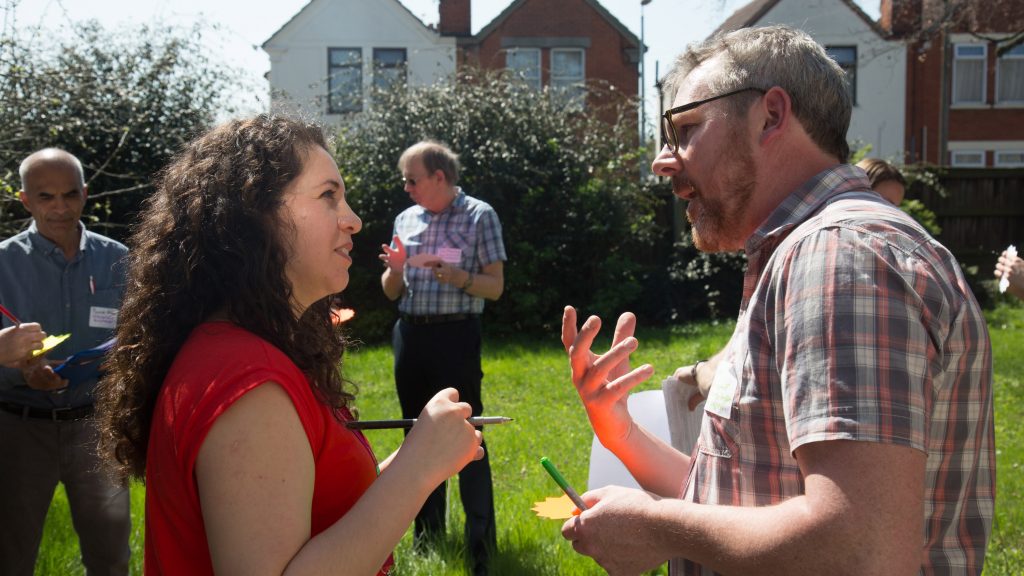Talking to Strangers: Lessons in Listening

If I was asked who has had a significant influence on the development of AKOU and the concepts that are the foundations of this business. Malcolm Gladwell would definitely be up there in the top ten.
I have just started to tuck into his new book ‘Talking to Strangers’ and just a few chapters in, it is already proving to be an explosive read that is sparkling with affirming theories.
When I first read The Tipping Point (by Gladwell, published in 2000) we had just begun our first pilot project, experimenting with the idea of digitally mapping connections between people in a community. We set out to help communities to collect and visualise data that demonstrated local social value so that a neighbourhood and their local council could learn from this information.
That was about five and a half years ago and at the time many people asked, why? Why is it important to do that? Reading The Tipping Point really helped to confirm why this exercise was so important.
“In the end, Tipping Points are a reaffirmation of the potential for change and the power of intelligent action. Look at the world around you. It may seem like an immovable, implacable place. It is not. With the slightest push—in just the right place—it can be tipped.”
Malcolm Gladwell
That quote seems even more prevalent today than it did six years ago. The past three years we have seen a series of unexpected tipping points. For example, this past week Extinction Rebellion have begun their second round of global protests, strikes and creativity parades to highlight the urgency of another looming tipping point. The Great Hack documentary on Netflix is another tremendous and terrifying example of how dangerous tipping points are now digital and data driven.
Switching perspectives
The Tipping Point takes the reader on a birds eye view tour of various networks and their tipping power that can send transformation rippling through culture. In Talking with Strangers however Gladwell seems to zoom into the granular. He gets down to the one on one. He asks us to switch our perspective from those that we know, to those people that we don’t know, and assess our human ability to deal with strangers.
“Today we are thrown into contact all the time with people whos assumption, perspectives and backgrounds are different from our own. The modern world isn’t two brothers feuding for control of the Ottomen Empire, it is Cortez and Motezuma struggling to understand each other through multiple layers of translation. Talking with Strangers is about why we are so bad at (the) act of translation. Each of the chapters is devoted to understanding a different aspect of the Stranger Problem.”
Malcolm Gladwell
Ultimately Gladwell is on a quest through the past, revisiting events where interactions between strangers have failed to translate into positive outcomes. Talking to Strangers asks what might be different today if “we were a little more thoughtful as a society, if we were willing to engage in some soul searching about how we approach and make sense of strangers”.
The art of good listening
The act of listening with whole hearted intention is something that we discuss regularly in our office. This is definitely another underlying theme in Gladwell’s latest exploration. What does good listening look like, how do we practice it and hone it. We know at AKOU that without good listening skills, we won’t get very far as a company. Ideation, brainstorming and group discussions requires active listening exercises to get the most out of each other and the time we have together.
When we are out in the field working with local communities at times when there is fear and anxiety over future changes to local places, it is imperative that we listen with genuine interest and empathy. Building a digital platform for local groups to demonstrate local social value through data storytelling has required a lot of listening over the years.
Hearing others is hard
If there is one thing that politics, history (and Gladwell’s Talking to Strangers) teaches, it is that unpredictable social catastrophes seem to arise when people are not being heard, and others are not taking the time to listen. Why is it then that recently it seems that for many neighbouring groups it is becoming harder and harder to hear each other.
Perhaps we need to examine our listening skills. How good are we really at listening? When so often we are caught up in what we need to say next. On October 23rd we shall be hosting a collective discussion on the future of leadership. What does it look like? How can we creatively disrupt the models of leadership we have come to know today, that presents so many fundamental flaws. At AKOU we believe that good leadership is about listening with the intention of learning from the other, rather than listening with the urgent need to always give an answer.
Join us and a host of leading agencies at The Cockpit Theatre, to discuss the future of leadership. We shall discuss how we become better leaders for ourselves, each other and within our local communities.
